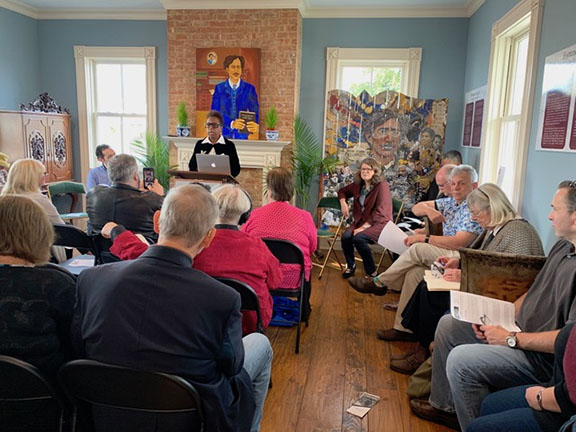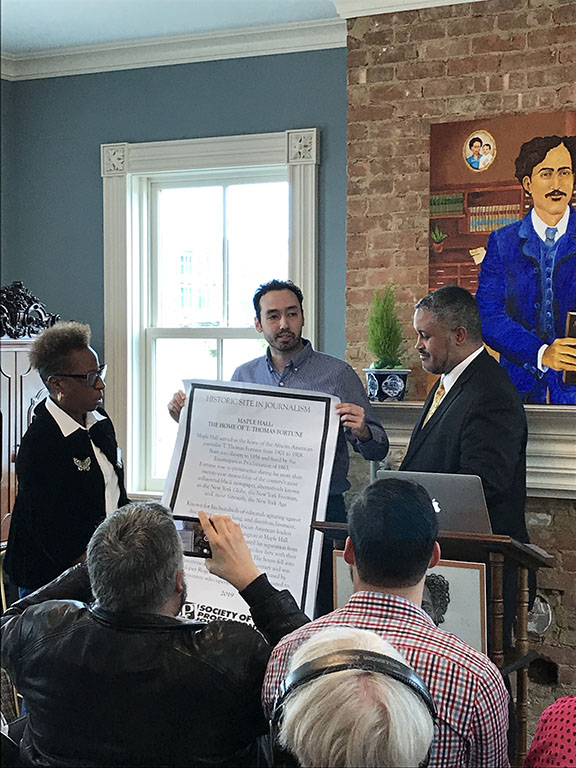
Photo by Robin Blair
By Rick Geffken
RED BANK – It was a designation the board, creators of the T. Thomas Fortune Foundation never anticipated when the New Jersey Chapter of the Society of Professional Journalists (NJ-SPJ) recognized the groundbreaking work of the African-American journalist T. Thomas Fortune and named the T. Thomas Fortune Cultural Center a National Historic Journalism Site at a dedication ceremony Oct. 26.
Born into slavery in 1857, T. Thomas Fortune was the pioneering African-American newspaper publisher who lived in Red Bank during the years he was editing the New York Freeman and other papers for African-American communities.
“All this to honor the man whom Gilda Rogers, vice president of the foundation’s board, called “ the most famous person you never heard of.”
Fortune’s recently renovated home, which he called Maple Hall, is now the headquarters of the T. Thomas Fortune Foundation.

Photo by Judith Pack
During a presentation at the foundation’s headquarters at 94 Drs. James Parker Blvd. on Saturday, Miriam Ascarelli and Nick Hirshon of the NJ-SPJ presented a plaque to Walter Greason, Ph.D., president of the T. Thomas Fortune Foundation, recognizing Maple Hall as an Historic Site in Journalism, one of only two related to African-American journalism in New Jersey. In its news release, the NJ-SPJ noted that “The (Fortune) family lived there from 1901 until 1911. Although Fortune’s story has been largely forgotten, Fortune was co-owner and editor of The New York Age, one of the leading black newspapers of the late 19th and early 20th centuries. He used his newspaper as a vehicle to speak out against lynching, black disenfranchisement and other injustices.”
In his acceptance speech, Greason, a Monmouth University associate professor and chair of the Department of Educational Counseling and Leadership, reiterated comments he made at a NJ-SPJ luncheon. “Fortune believed in the essential promise of America. He believed that a citizen – a free person – could raise his or her voice against injustice. He believed that if enough people heard that voice, those ideas, that the government itself would be forced to change.”
“Fortune believed that we could create the world we have today, even when other journalists of the late nineteenth century ignored, rejected, and belittled him,” Greason said.
The cultural center offers exhibitions, art installations, guided tours, author reading, guest speakers, education workshops and programs for children, teens and adults.
The foundation works to promote Fortune’s legacy of social justice advocacy to further racial equality.














